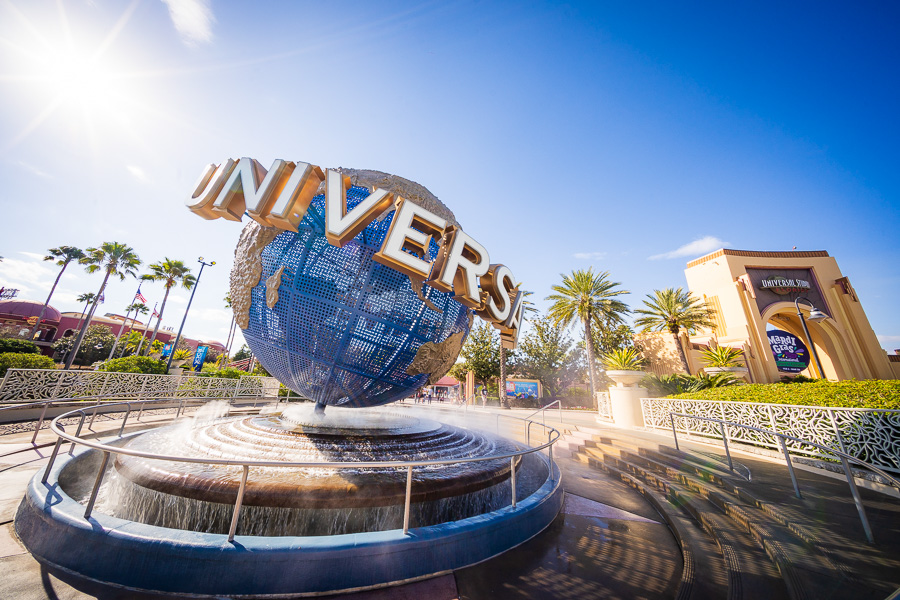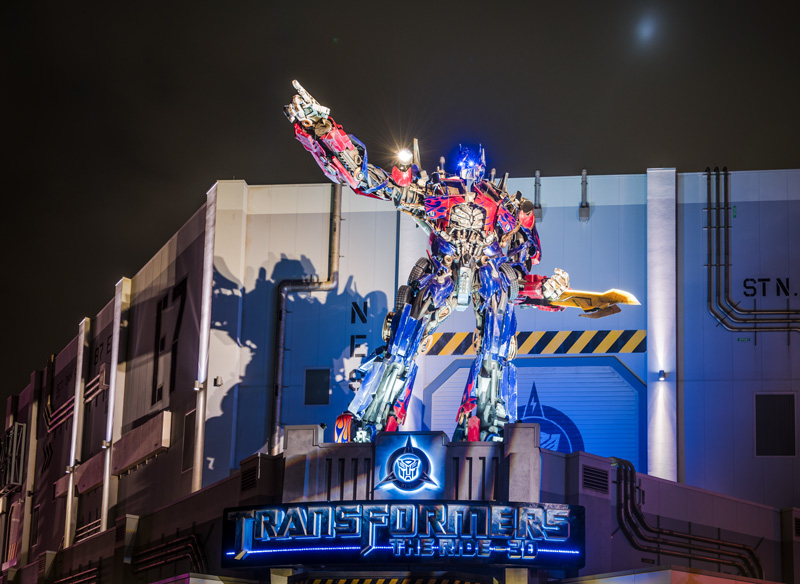

Universal Studios Florida and Islands of Adventure (and possibly Hollywood) theme parks have again changed their disability access policies and requirements for the second time in just over a year. This article covers the new policy as well as a brief review and commentary on possible motivations leading up to it, and how this compares to Walt Disney World’s new approach to DAS.
As early as July 2023, Universal Orlando and Universal Studios Hollywood completely reformed the Attraction Assistance Pass (AAP). They began requiring visitors who applied for attraction queue accommodation to apply for a card called ” Individual Access Card (IAC) To be eligible for an Attraction Assistance Pass.
The work was done in partnership with the International Board for Certification and Continuing Education Standards (IBCCES), an organization that provides training and certification for people with autism and neurodivergent personality disorder or other disabilities. IBCCES has been controversial from the start, or perhaps polarization More accurate. We hear a lot of readers say they love the IBCCES system, while others hate it. There seems to be little middle ground—it’s usually one of the extremes. (At least, according to the feedback we’ve received.)
To obtain a personal accessibility card, guests with disabilities must submit a photograph and documentation from a medical provider, government group, or school district detailing the type of accommodation needed. Guests are not required to provide medical records, private identifying information, or other documentation protected by HIPAA.
However, the process must be completed at least 48 hours prior to arrival at a Universal Studios theme park. Once the prerequisites for a Personal Accessibility Card have been met, a Universal Studios team member will contact the cardholder to discuss specific accommodations and whether they qualify for an Attraction Assistance Pass.
Contrary to some misconceptions, receipt of an IAC does not automatically mean receipt of an AAP. Eligibility is still determined on a case-by-case basis. Prior to this change in July 2023, Universal Studios’ system was self-certified, similar to the previous system at Walt Disney World.


By fall 2024, IAC will become an option, not mandatory. This means Universal Studios guests MayGet an IBCCES Individual Access Card (IAC) within 30 days of visiting the park, but unnecessary Do this.
As first reported Travel Planguests without an IAC can still receive an AAP. Guests with disabilities who are unable to wait in traditional attraction lines can visit the park’s Guest Services desk in person on the day of their visit to discuss attraction line arrangements and obtaining an AAP with a member of the Guest Accessibility team.
If guests choose to pre-register, the process appears to be more streamlined. Upon arrival at the park, approved IAC cardholders will present their approved IAC to Guest Services at a dedicated IAC fulfillment location to obtain attraction line accommodations. This should save time compared to going to Guest Services in person on the day of the process.
If it’s anything like what’s happening at Disneyland — where lines still form most mornings at the remodeled ticket booths that now serve as accessibility locations — guests will be incentivized to stick with IBCCES to save time. It will also make scheduling more predictable and less hassle-free. That is, assuming Universal team members carefully review requests for the day, which they probably don’t!
There are other accommodation options at Universal Studios, including Accessibility Information Page from the official website of Universal Orlando Resort.


As we noted when we covered Disney’s DAS overhaul this summer, Walt Disney World and Disneyland do not use the IBCCES Personal Access Card, even though it has become somewhat of an industry standard. It’s not just Universal Studios—many other amusement and theme parks have also switched to IBCCES (Here is a full list of participating parks:).
However, IBCCES is not without controversy. The United States District Court for the Eastern District of California has heard a lawsuit involving IBCCES: IL v. Six Flags Entertainment, Inc. et al.The complaint alleges violations of the Americans with Disabilities Act and the California Disabilities Act and seeks class action status.
Among other things, the lawsuit claims that the use of IBCCES violates the regulations implementing the ADA and that the record-keeping requirements are onerous and not reasonably met by all individuals with disabilities who meet the ADA criteria. It further claims that requiring a private, for-profit company to disclose sensitive personal information and provide private medical documentation to support accommodation requests violates the ADA.


The complaint also alleges that Six Flags violates the ADA by using IBCCES because it pre-screens accommodation requests, including advance registration and documentation requirements. This prevents people with disabilities from using and enjoying the parks to the same degree as people without disabilities, who can purchase tickets on the day and enter the parks to spontaneously enjoy all the benefits the parks offer without advance planning or preparation.
There is a lot more to the 57-page complaint, but these are the main arguments. Given Universal’s changes that essentially eliminate the use of IBCCES starting in the fall of 2024, I think it is likely (if not likely) that their legal team evaluated the complaint and determined that they need to revise their accessibility process or risk being embroiled in similar litigation.
These changes are intended to accomplish exactly that: protect Universal from lawsuits. If a similar lawsuit were filed against Universal today, the company would win. This is likely the primary motivation for making IBCCES optional, but it is still highly recommended (while also not over-promoting these changes).


This is almost exactly what we said when Disney launched its DAS reforms earlier this year.
I don’t want to be the loser in an ADA case, and I suspect that the Disney legal department conducted a litigation risk assessment of IBCCES and steered DAS reforms in a different direction as a result. Regardless, the latest changes to DAS will almost certainly lead to more litigation. Accessibility changes inevitably lead to litigation, and Disney likely considers it a cost of doing business.
But I also hope that Disney will prevail in any such lawsuit, as the Disney legal department is very careful and likely played a major role in crafting a new DAS policy that complies with the ADA. If the next DAS reform (however many years that may be) Do If Six Flags wins the above lawsuit, IBCCES will be involved. However, all of this is just my own speculation.


This may explain why changes to disability access services were delayed, as well as Disney’s decision to work with Inspire Health Alliance instead of IBCCES. It may also be why DAS still offers an arrival option on both the East and West Coasts (Disneyland’s more robust same-day system may be due to the lawsuit, California law, or Disneyland’s disproportionate local demographics — or a combination of all three).
Of course, this isn’t to say that Disney’s new system is perfect, or far from it. Just that it was likely put in place to prevent lawsuits. It’s well documented that the DAS reforms have been extremely controversial among fans of both Walt Disney World and Disneyland.
There are countless sad stories of disabled guests being denied the accommodations they ostensibly need, and every week it seems like a new one goes viral on social media. I won’t pretend to know what the “perfect” solution is, but I know the status quo is heartbreaking.
Need travel planning tips and comprehensive advice for visiting Central Florida? Be sure to read our Universal Orlando Resort Planning Guide Learn all about Islands of Adventure and Universal Studios Florida. Also check out our Walt Disney World Vacation Planning Guide Learn everything about these parks, resorts, restaurants and more. For regular updates, news and rumors, alerts when discounts are released and more, Subscribe to our free email newsletter!
Your thoughts
What do you think about Universal Studios canceling its partnership with IBCCES and no longer requiring guests to work with a third party? Do you like or hate what IBCCES is doing? How do you think this will change the Universal Studios attraction line accommodation process or experience? If you have used Universal Studios’ Attraction Assist Pass, what do you think of the process and guest experience for obtaining the pass? Any other thoughts? Please try to stay on topic – we’ve noticed some of these comment sections get heated and personal. Discuss the policy itself, not others’ use (or lack thereof) of the policy. Overly hostile comments will be deleted.






